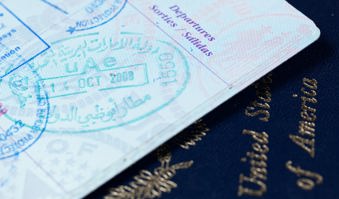Everything You Should Know About Health Insurance in UAE
 24 Jan, 2023
24 Jan, 2023
Learn about what health insurance covers in the UAE. Know about the laws and regulations associated across UAE for expats, employers and sponsors.
The UAE has one of the finest healthcare infrastructures in the world. Health insurance is the key factor in availing these facilities. The regulations associated with health insurance in the UAE vary across emirates. For instance, employers are legally required to provide health insurance for their expat employees in Dubai and Abu Dhabi only. Stay updated on these laws to avoid hefty fines and penalties.
Quick Read Section
- Health Insurance in Dubai:
- For expats, mandatory by law and has to be provided by the employer.
- ‘Enaya’ – unified government health insurance system for all nationals and residents who are government employees
- For UAE nationals, access to ‘Saada’ that provides insurance coverage at private providers and DHA centres.
- Health Insurance in Abu Dhabi:
- For expats, employers and sponsors have to provide insurance for employees and their dependents.
- For nationals, the ‘Thiqa’ program provides access to public and private healthcare providers in the Daman network.
- Health Insurance in Northern Emirates:
- In Sharjah, government employees and their dependents are provided with cover.
- In Ajman, government employees are provided with health insurance coverage.
- The Ministry of Health manages healthcare regulations for the rest of the Emirates, and employers are not legally bound to providing cover for employees and their dependents.
Health Insurance in Dubai
The medical insurance law in Dubai (No. 11 of 2013) states that all residents must have a valid health insurance plan that meets or exceeds the minimum requirements set by the Dubai Health Authority (DHA).
Article 10 Section 2 of the law also states that employers in Dubai are required to provide health insurance for their employees. The employer must bear the cost; the health insurance premium cannot be deducted from the employee’s salary. All dependents of the employee, which include spouse, children as well as domestic workers, must also have basic health insurance coverage provided by the sponsor. Employers are not legally obligated to provide it.
The Dubai government has taken steps to build a unified health insurance system called the ‘Enaya’ Insurance program. It includes all government insurance systems (like Saada). This policy provides health insurance for all UAE nationals and their dependents residing in Dubai (both public and private employees), who are not covered under any other government scheme. It also provides health insurance coverage to residents that are government employees, along with their dependent family members (spouse and three children under the age of 21 years). The services under the ‘Enaya’ program are distributed through two major companies – Neuron and Almadallah.
Under the ‘Enaya’ program, there are multiple public insurance systems. One of the programs that provides health insurance for UAE nationals is called ‘Saada’. It provides access to a large network of both private and public healthcare providers. UAE nationals are eligible for this scheme only if they are not covered under any other government programs.
Health Insurance in Abu Dhabi
Healthcare in Abu Dhabi is regulated by the DOH which mandates that health insurance for expats has to be provided by the employer. Employers are also legally mandated to provide coverage for the employee’s dependents. They should bear 50% of the cost for the dependents (spouse and 3 children under the age of 18 years). The rest of the cost has to be covered by the employee or sponsor. Health insurance for expats has to meet the minimum requirements listed in the Abu Dhabi Basic Plan offered by The National Health Insurance Company (Daman).
For UAE nationals on the other hand, the government’s ‘Thiqa’ program provides complete coverage and full access to most of the public and private healthcare network in Abu Dhabi. In order to be eligible for this program, UAE nationals must be between 18-75 years of age and should be residing in Abu Dhabi. They also have to go through the ‘Weqaya’ screening set up by the Department of Health to identify any cardiovascular risks and get the ‘Thiqa’ card issued.
Health Insurance in Northern Emirates
The rules regarding medical insurance in the northern emirates are slightly different. In Sharjah, the Department of Health Insurance of the Sharjah Health Authority provides health insurance coverage for all UAE nationals and government employees along with their dependents residing in Sharjah. However, private employers are not legally bound to providing health cover for expats.
Similarly, the government of Ajman also provides coverage for government employees. Employers in Ajman along with all other northern emirates are not legally required to provide health insurance coverage for their employees or their dependents.
Conclusion
Health insurance in the UAE is a must to access the world class healthcare facilities offered by the country. It is a legal requirement in Dubai and Abu Dhabi; failure to comply can lead to hefty fines of AED 500 and AED 300 per month respectively. As an expat, it is advisable to reach out to an insurance broker that would help you choose the right health insurance plan as per your needs and with a suitable premium. Contact our team of health insurance experts today.

Elevate Your Health Coverage to the Next Level!
Congratulations on taking the first step towards securing your health!
Now, imagine having even greater peace of mind with our Comprehensive Health Insurance plan.
Enjoy enhanced coverage, wider scope, and ultimate protection for you and your loved ones.
Need more help?
 Buy Now
Buy Now Online Plans
Online Plans



